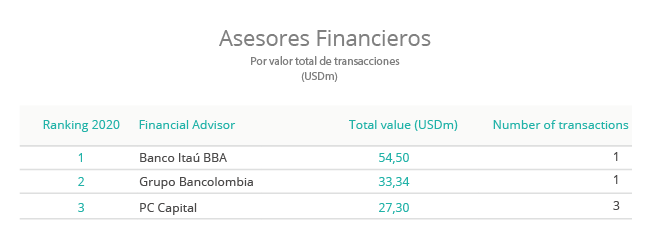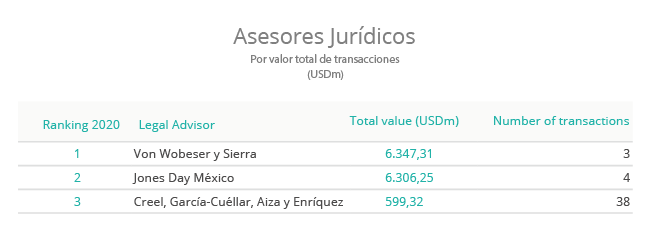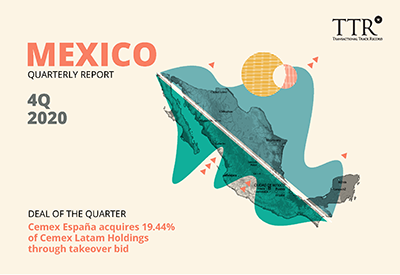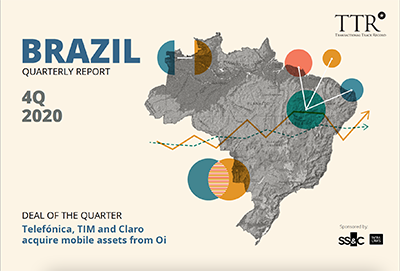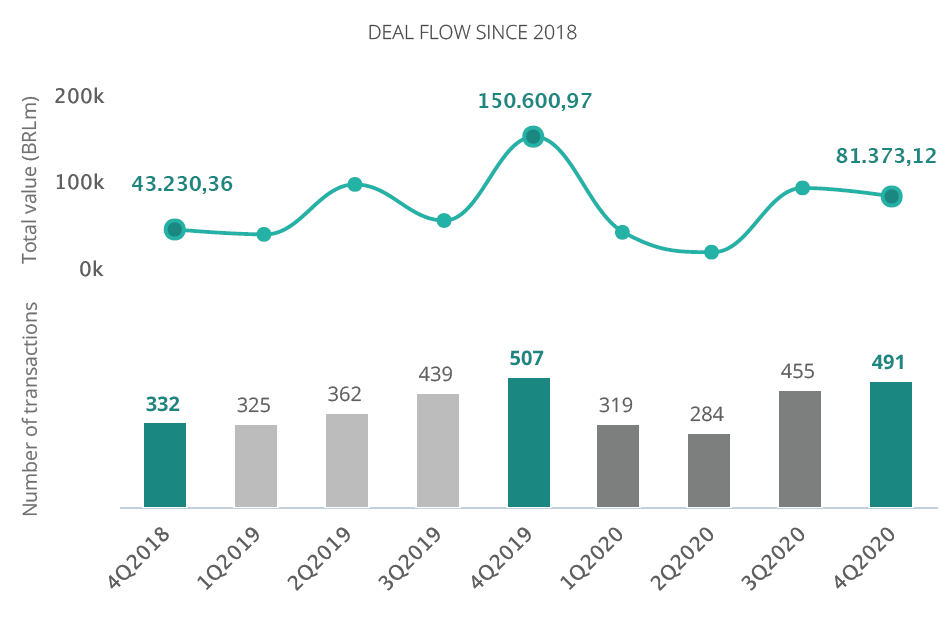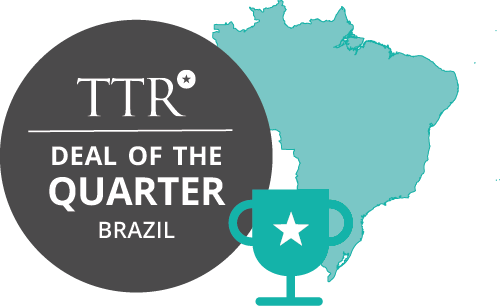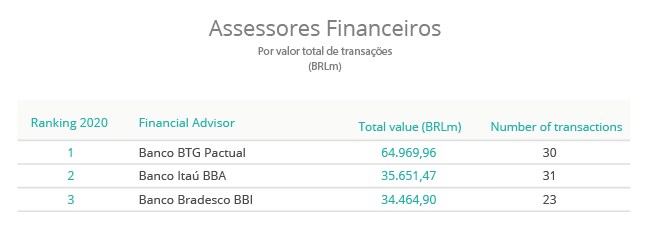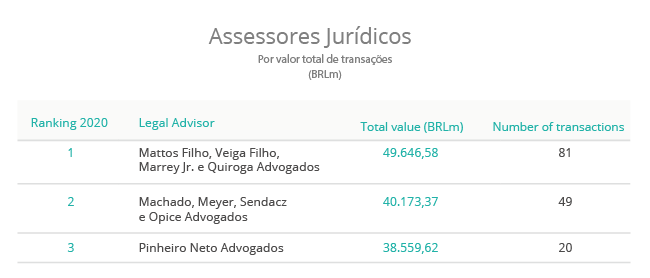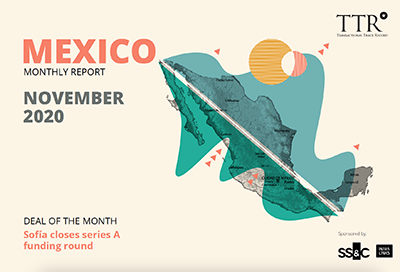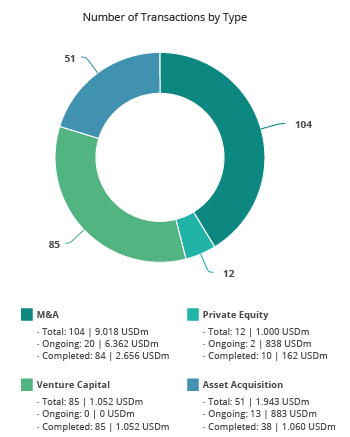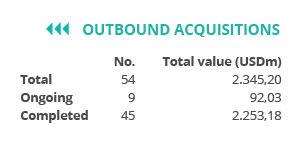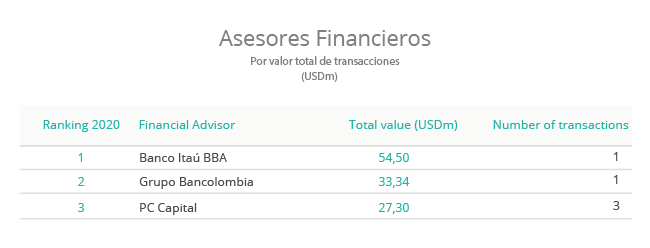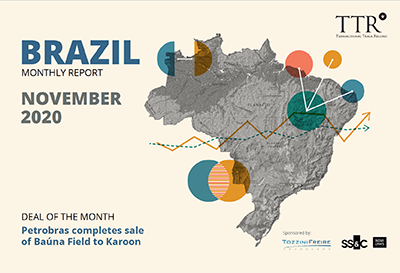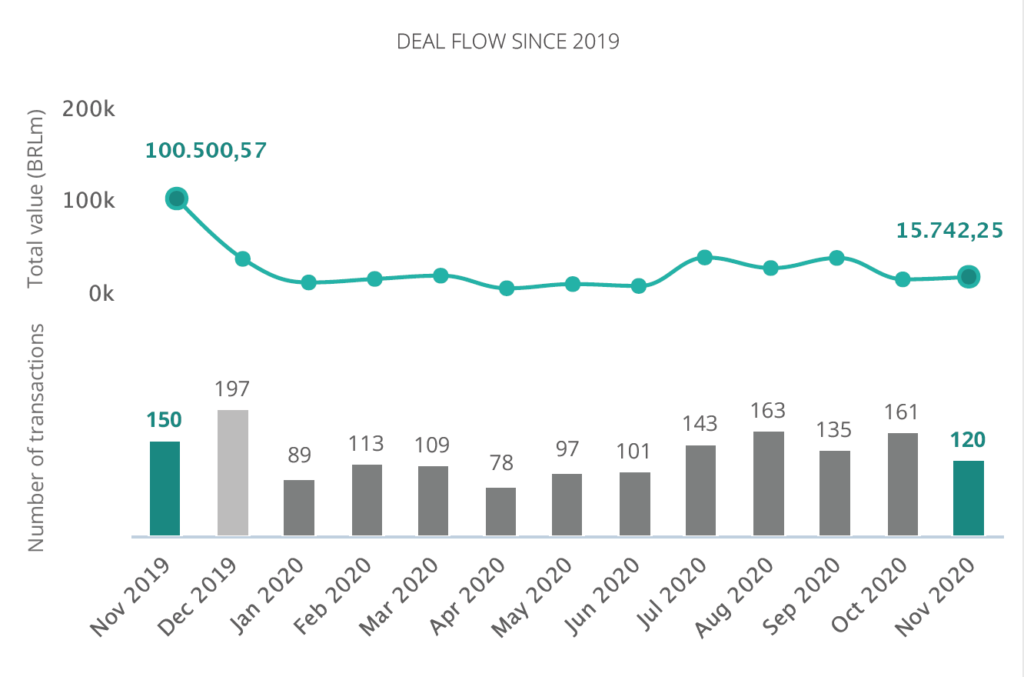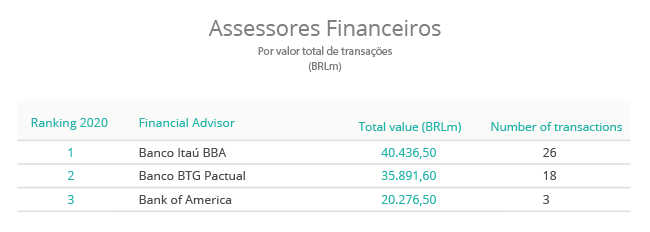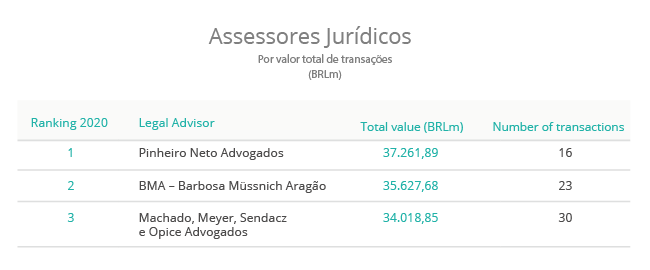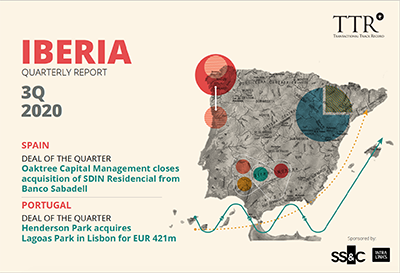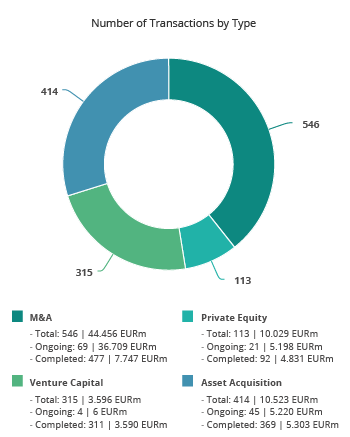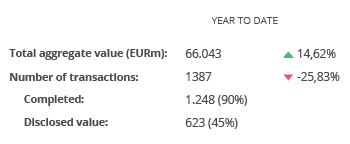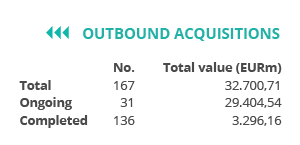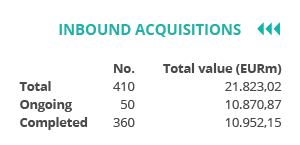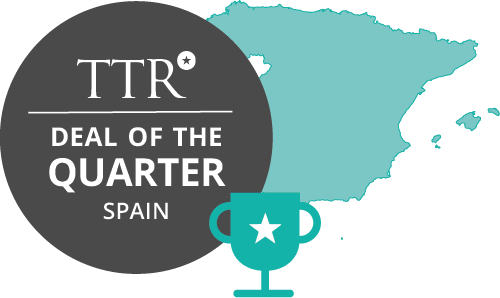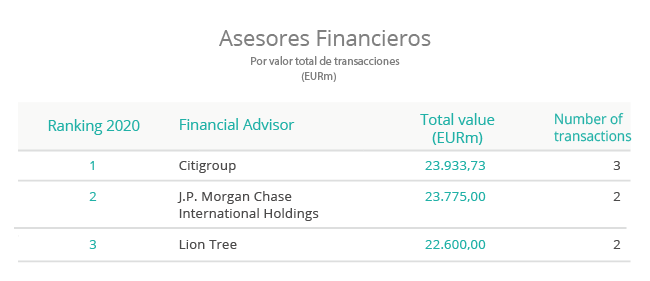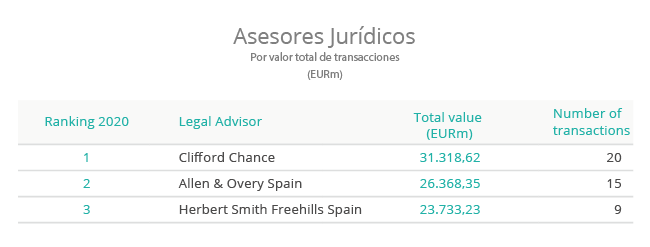El mercado M&A en México
disminuye su actividad un 6% en 2020
En el año se han registrado 302 deals por USD 13.387m
El sector Financiero y de Seguros, además de Tecnología, los más destacados de 2020
El sector Internet ha aumentado su actividad en el año en un 18%
El mercado transaccional mexicano ha registrado en 2020 un total de 302 fusiones y adquisiciones, entre anunciadas y cerradas, por un importe agregado de USD 13.387m, según el informe anual de Transactional Track Record. Estas cifran suponen una disminución del 6,21% en el número de operaciones y una disminución del 26,32% en el importe de las mismas, con respecto a diciembre de 2019.
Por su parte, en el cuarto trimestre de 2020 se han contabilizado un total de 86 operaciones con un importe agregado de USD 2.309,47m.
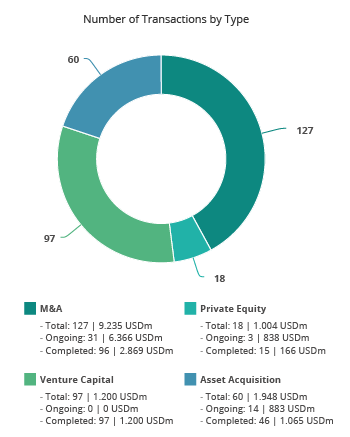
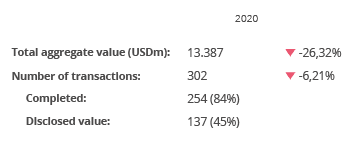
En términos sectoriales, el Financiero y de Seguros es el más activo del año, con un total de 59 transacciones, seguido por el sector de Tecnología, con 56, y el de Internet, con 40 operaciones. En términos interanuales, el sector Financiero y de Seguros ha registrado un aumento del 2%, el sector de Tecnología ha disminuido un 11%, mientras que el sector de Internet ha aumentado su actividad en un 18%.
Ámbito Cross-Border
Por lo que respecta al mercado Cross-Border, en el año las empresas mexicanas han apostado principalmente por invertir en Estados Unidos, con 18 transacciones, seguido por España, con 13 operaciones. Por importe, destaca España, con USD 1.152,95m.
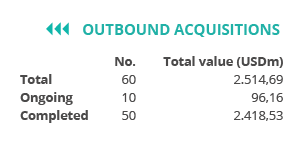
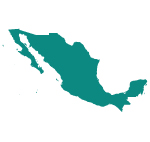
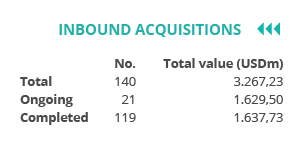
Por otro lado, Estados Unidos y Reino Unido son los países que más han apostado por realizar adquisiciones en México, con 74 y 13 operaciones, respectivamente. Por importe, destaca Estados Unidos, con USD 2.034,69m.
Private Equity y Venture Capital
Hasta el cuarto trimestre de 2020 se han producido un total de 18 transacciones de Private Equity valoradas en USD 1.004m, las cuales representan una disminución del 28% en el número de operaciones y una disminución del 60,63% en el capital movilizado con respecto al cuarto trimestre de 2019.
Por su parte, en 2020, México ha registrado 97 operaciones de Venture Capital valoradas en USD 1.200m, lo que representa un aumento del 6,59% en el número de operaciones y una disminución del 37,53% en el capital movilizado con respecto al mismo periodo del año pasado.
Asset Acquisitions
En el mercado de adquisición de activos, se han cerrado hasta diciembre 60 transacciones con un importe de USD 1.948m, lo cual implica un descenso del 28,57% en el número de operaciones y un descenso del 61,40% en su importe con respecto al mismo periodo de 2019.
Transacción del trimestre
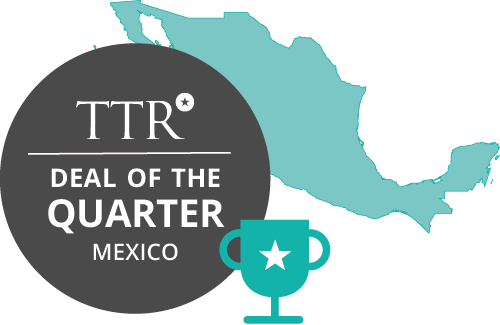
Para el cuarto trimestre de 2020, Transactional Track Record ha seleccionado como operación destacada la relacionada con Cemex España, la cual ha adquirido un 19,44% de Cemex Latam Holdings mediante una OPA.
La operación, valorada en USD 102,82m ha estado asesorada por la parte legal por Baker McKenzie España y por Gómez-Pinzón.
Ranking de asesores financieros y jurídicos
